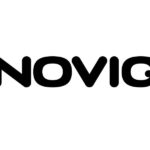NHL signs multi-year deals with Kalshi and Polymarket

The NHL has signed multi-year partnerships with prediction markets Kalshi and Polymarket.
The deal, announced on Wednesday, gives both Kalshi and Polymarket access to the NHL’s data and rights, allowing both sites to use NHL branding, including logos, on their platforms and products.
Respective brokers and merchants of Kalshi and Polymarket will also be able to feature NHL branding on any prediction market products they offer.
The deals will offer the two prediction markets high-profile exposure during NHL broadcasts across the regular season, the Stanley Cup Playoffs, the Winter Classic, and the Stadium Series.
Keith Wachtel, President of NHL Business, said, “As prediction markets continue to evolve at a rapid pace, partnering with the two market leaders, Kalshi and Polymarket, provides a tremendous opportunity for the broadest fan engagement during the NHL season. Polymarket and Kalshi are ideal partners as this category continues to grow and expand.”
Polymarket Chief Executive Shayne Coplan and Kalshi Chief Executive Tarek Mansour have both expressed excitement to be partnering with the NHL.
Coplan said Polymarket would be able to enhance fan experiences by providing engaging NHL-based markets. Mansour added that the partnership underscores Kalshi’s commitment to providing prediction markets that bettors can trust.
Earlier this month, both Polymarket and Kalshi revealed updated valuations, with Polymarket being valued at US$8 billion and Kalshi at US$5 billion.
However, there is still strong pushback from the traditional sports betting industry as prediction markets continue to sweep through the US off the back of federal Commodity Futures Trading Commission licenses, instead of having to traverse state-by-state licensing regimes as sportsbooks do.
Reacting to the NHL deal in an ESPN article on Wednesday, the American Gaming Association described the move as “deeply concerning.”
American Gaming Association president and Chief Executive Bill Miller told ESPN, “No professional league should lend its brand to companies operating in defiance of state law and consumer protection norms.”
Last week, the Nevada Gaming Control Board circulated a notice to licensees clarifying that it regards sports event contracts in the same way as it does traditional wagers, meaning they can only be offered in the state by entities that hold a non-restricted gaming license with sports-pool approval.
Charlotte Capewell brings her passion for storytelling and expertise in writing, researching, and the gambling industry to every article she writes. Her specialties include the US gambling industry, regulator legislation, igaming, and more.
Verticals:
Sectors:
Topics:
Dig Deeper
The Backstory
Why this partnership lands now
The National Hockey League’s decision to sign multi-year partnerships with prediction markets Kalshi and Polymarket caps a year in which the once-niche sector edged into the sports mainstream and into federal regulatory daylight. The NHL is offering official data and branding access plus broadcast exposure, a notable endorsement as prediction markets vie to be treated as financial products rather than sports wagers. The move arrives amid escalating friction with the traditional sportsbook ecosystem, which argues these platforms sidestep state-by-state licensing. It also follows fresh signals from state regulators who say sports contracts look and feel like bets. That tension sets the stage for the NHL’s bet that federally supervised prediction markets can deliver engagement at scale without the compliance drag that governs sportsbooks.
The timing reflects two converging forces: rapid product and distribution expansion by market leaders and a pendulum swing in Washington that has given the category clearer operating room. Together they explain why a major league would authorize logos and data for platforms still navigating state pushback.
A rapid return to the U.S. market
Polymarket’s path back to U.S. users is a central thread. After a 2021 settlement that walled off the platform from U.S. trading, Polymarket engineered a reentry this fall through a structure that won federal forbearance. The company disclosed filings to list four contract types and said it could relaunch as early as October. That plan followed a deal to acquire crypto exchange group QCX and the Commodity Futures Trading Commission’s no-action relief that cleared a route home. Our coverage on the pivot detailed how the firm framed the effort as a compliance-forward reboot designed to align crypto rails with market rules while preserving product speed and breadth. Read more in Polymarket set to relaunch in US as early as Friday.
The relaunch mechanics matter for the NHL. Polymarket’s U.S. presence, backed by federal oversight, reduces brand risk for a league wary of gray-market optics. It also enables contracts on athletic outcomes that pair neatly with official data rights and broadcast hooks. The more credible the compliance perimeter, the easier it is for a major league to sanction logos on third-party products.
Social scale and product ambitions
Distribution is another driver. Polymarket moved to extend reach by striking a partnership with X that promises integrated prediction feeds and real-time market notes across the social platform. The tie-up aims to blend Grok’s analysis with live contract probabilities, a bid to turn breaking news into tradable moments and vice versa. That ambition to sit where audiences already are shows how prediction markets plan to grow beyond crypto-native users and into mass sports and news cycles. For details on the integration roadmap and rationale, see Polymarket ties up with X as official prediction market partner.
For the NHL, a partner that can marry official branding with social-native distribution is a route to incremental reach, especially around tentpoles like the Winter Classic and the playoffs. If prediction markets can deliver real-time, data-backed probabilities in feeds fans already scan, the league gets brand presence where attention is highest without shouldering trading risk.
Branding skirmishes foreshadow league approvals
The NHL’s licensing stance also reflects lessons from recent frictions elsewhere in pro sports. Kalshi and Polymarket drew attention for marketing that used NFL team marks and player images without consent. Promotions around the season’s opening weekend featured team logos and player likenesses, while other ads referenced league trademarks. The episode underscored how quickly marketing can outpace permissions when platforms scale faster than their rights frameworks. Our earlier report captures how that clash unfolded and the league’s posture on integrity and information-sharing. Read more in Kalshi and Polymarket accused of using NFL and NFLPA branding without approval.
That backdrop helps explain why the NHL structured formal access to marks, data and broadcast placements. Bringing prediction markets inside the tent sets clearer rules on use of team assets and establishes information-sharing protocols, a precondition leagues increasingly demand from regulated betting partners. It also answers critics who argue the platforms have operated in brand gray zones.
Regulators redraw the lines
The federal angle is shifting too, with implications for sports contracts. In September, a Washington, D.C., federal court decision cleared Kalshi to list election-related contracts. The CFTC later voluntarily dropped its appeal, signaling a tactical reset in how the agency will police the space. Kalshi cast the outcome as a validation of a compliance-first strategy and a milestone in normalizing prediction markets under derivatives law. Our coverage of the regulator’s move is here: CFTC drops Kalshi election betting appeal.
While election markets are distinct from sports, the legal posture matters. Federal recognition of certain event contracts as permissible under commodities rules strengthens the argument that regulated exchanges can list sports outcomes as financial products with consumer safeguards. That collides with state gambling regimes, where regulators say sports contracts are wagers that require local licenses. The NHL’s partnerships are being inked in the middle of that jurisdictional crosscurrent, raising the stakes for how leagues, states and federal overseers divide authority.
Dealmaking and the competitive chessboard
The NHL deals also land amid consolidation chatter and capital inflows. As football season began, reports surfaced that both Kalshi and Polymarket had sized up sweepstakes-style rival Novig, which runs a peer-to-peer, no-commission sports platform with its own virtual currency schema. Whether or not offers were formal, the interest signaled a race to lock up distribution and product talent as user demand migrates toward exchange-style sports trading. Our report outlines the approaches and regulatory posture across players: Novig sees interest from prediction platforms Kalshi, Polymarket.
Novig’s rapid rise, brief New Jersey retreat and fresh funding highlight the fragmented compliance map. For incumbents like Kalshi and Polymarket, targeted M&A could accelerate user growth while reinforcing a federally supervised model. For leagues, consolidation could simplify partner management and tighten integrity controls, especially if fewer platforms command most sports liquidity.
Taken together, these threads show why the NHL’s call is consequential beyond hockey. A major U.S. league is testing whether federally regulated prediction markets can deliver scale and safeguards that satisfy brand, fan and integrity priorities. The deals may invite sharper pushback from state regulators and traditional sportsbooks, but they also give prediction markets a proving ground on national broadcasts. What happens next will help determine whether event trading is absorbed into the sports business mainstream or remains a regulated outlier battling on multiple fronts.








